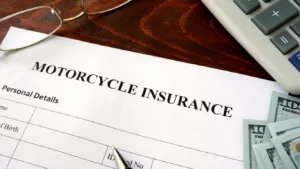Does it ever cross your mind why your car insurance is so high? You’re not alone. Many people grapple with the same question, scratching their heads in confusion. Car insurance can be a complicated business, with rates varying significantly from one person to the next. The key lies in understanding the factors that influence these rates.
Let’s peel back the layers of this complex issue. By shedding light on the key determinants of car insurance rates, we can make the baffling world of insurance less intimidating. Armed with this knowledge, you can take steps to potentially lower your premiums in the future. So, why is your car insurance so high? Here are some of the most crucial factors that insurance companies consider:
1. Age
Ever wondered why it seems like younger drivers always get the short end of the stick when it comes to car insurance premiums? Well, it’s not just because insurance companies enjoy picking on youngsters. Age plays a crucial role in how insurers calculate your premium.
- Young Drivers: Generally, drivers under 25 are seen as high-risk because they lack experience on the road. This lack of experience, coupled with their youthful enthusiasm (read: fast and furious tendencies), often results in higher accident rates. Consequently, their premiums are typically higher.
- Mature Drivers: Once you hit your mid-20s, you’ll start to see your premiums decrease (a little something to look forward to, right?). Essentially, insurers believe that with age comes wisdom…and safer driving habits.
- Senior Drivers: Unfortunately, once you reach your golden years (usually 70 and above), your insurance rate may start to creep up again. This increase is due to the perceived risk of health issues that could affect your driving ability.
Remember, age is just a number… unless you’re talking about car insurance. Then it’s a pretty significant number that can impact your pocketbook.
But don’t fret! Regardless of your age, there are ways to lower your car insurance premiums. Safe driving practices, advanced driving courses, and even good grades for student drivers can all contribute to decreased rates.
2. Gender
So, you’re wondering why your car insurance rates are sky-high while your neighbor, who drives a similar car and has a comparable driving record, pays peanuts in comparison. Believe it or not, it might be because you’re a guy! Yes, you read it right.
“Insurance companies don’t discriminate, but they do calculate risks. Statistically, men – especially those under the age of 25 – are more likely to get into accidents. Hence, the higher premiums.”
Seems unfair, right? But don’t shoot the messenger. Let’s break it down:
- Young Men: If you’re a young man under 25, brace yourself. You’re considered a high-risk driver. The fact that you may have never had a fender-bender doesn’t matter. It’s all about the statistics, my friend.
- Mature Men: If you’re over 25, breathe a sigh of relief. Your rates should start to decrease. That is, unless you have a dodgy driving record. In that case, you might still be stuck with higher rates. Sorry, pal!
- Women: Generally, women are considered safer drivers and hence attract lower premiums. So, ladies, go ahead and enjoy those lower rates. But remember, reckless driving can still push your premiums up, so keep it safe on the roads.
What can I do about it?
Well, you can’t change your gender just to get lower insurance rates – at least, we wouldn’t recommend it! But there are a few things you can do:
- Safe Driving: Keep your driving record clean. No speeding, no reckless driving, and definitely no DUIs.
- Defensive Driving Course: Some insurance companies offer discounts if you’ve completed a defensive driving course. It’s worth checking out.
- Ask for Discounts: Insurance companies often have discounts that they don’t advertise. It never hurts to ask.
So, while gender does play a role in determining your car insurance rates, it’s not the be-all and end-all. Safe driving habits can help you lower your premiums over time, regardless of your gender.
3. Driving Record
Ever wondered why your flawless driving record doesn’t seem to bring down your car insurance premiums? Well, buckle up, because we’re diving into the ins and outs of how your driving record impacts your insurance rates.
First off, let’s tackle a bitter truth: insurers love safe drivers. They’re like that teacher you had in school who always gave extra points for neat handwriting. The fewer tickets and accidents you have, the lower your insurance rates will be. But if you’ve racked up points on your license faster than a hotshot NBA player, you’re going to notice that reflected in your premiums.
Insurers calculate risk. The riskier they perceive you to be, the higher your premiums will be. And nothing screams ‘risk’ like a spotty driving record.
Let’s break down how your driving record can make your rates skyrocket:
- Accidents: If you’ve been involved in several accidents (even if they weren’t your fault), insurers might deem you a magnet for mishaps and hike up your rates.
- Traffic Violations: Speeding tickets, DUIs, and reckless driving charges tell insurers you like to live on the edge – but they’re not fans of thrill-seekers when it comes to road safety.
- Claims History: If you’ve made several insurance claims in the past, insurers might see you as a potential ‘claim-happy’ client in the future. And guess what? Yep, that means higher premiums.
Still with me? Good. Now, let’s look at what you can do to improve your driving record and potentially lower your insurance rates.
- Defensive Driving Course: Completing a defensive driving course can polish your driving record and get you in good graces with your insurer. It’s like giving them a shiny apple – they love it!
- Safe Driving Habits: The best way to improve your driving record is to, well, drive safely. Mind-blowing, I know! But seriously, avoid speeding, don’t text and drive, and always signal before you turn.
- Consideration of Insurance Deductibles: Higher deductibles can lower your insurance premium. But remember, this also means you’ll have to cough up more cash in case of an accident.
So, next time you’re wondering, “Why is your car insurance so high?”, take a minute to examine your driving record. A clean driving record may just be the key to lower insurance rates. Drive safe!
You must read: how much is motorcycle insurance
4. Location
Oh, the places you’ll go! And oh, how they’ll impact your car insurance rates. You might think that your charming coastal town or bustling city is the perfect spot to live, but your insurance company might not agree.
Why?
Because where you park your car at night, and the area’s demographics and statistics, play a hefty role in determining your insurance rates.
Urban vs. Rural
Live in a densely populated area? Expect higher rates. More people mean more cars, which in turn means more chances for accidents and thefts. Those country roads may take you home, but they’ll also likely take you to lower insurance premiums.
Crime Rate
If your area is notorious for vehicle thefts and vandalism, chances are you’re going to be paying a pretty penny for your car insurance. Insurance companies take a look at local crime statistics and if the numbers aren’t in your favor, that’s a direct hit to your wallet.
Weather Conditions
Do you live somewhere with severe weather conditions? Hailstorm central or tornado alley? Yikes! Insurers aren’t big fans of extreme weather due to the risk of damage to your vehicle. So, if your car is often at the mercy of Mother Nature’s mood swings, it’s likely to be reflected in your insurance rates.
Local Legislation
Insurance is heavily regulated at the state level. Differences in laws and regulations from one state or city to another can lead to significant variations in insurance premiums. So, if your state legislation thinks you need more coverage, you’ll be footing the bill.
Let’s break it down with a simple table:
| Factor | Impact |
|---|---|
| Urban vs. Rural | Urban areas typically mean higher rates. |
| Crime Rate | High crime rates lead to higher premiums. |
| Weather Conditions | Harsher weather equals higher risk and rates. |
| Local Legislation | Different laws can result in varying premiums. |
So, next time you’re contemplating a move, you might want to consider not just the view, but the potential hit to your car insurance rates as well. Remember, your insurance company’s favorite locations might not match your dream destinations!
5. Type of Car
insurance? Well, your car could be the culprit. Yes, you heard that right. Your car’s make, model, and year play a significant role in determining your insurance premium.
Insurance companies may perceive certain car models as ‘riskier’ based on factors like their safety ratings, likelihood of theft, cost of repairs, and overall performance. These traits put together, paint a picture of how likely your car is to land you in an insurance claim, and thus, they affect your insurance rate.
For instance, if you’re driving a brand new, top-of-the-range sports car, your insurance rates will likely be higher. Why? Because:
- Cost of Repair: High-end vehicles often require expensive parts and specialized labor for maintenance or repair, which can increase your insurance cost.
- Theft Likelihood: Luxury and performance cars are often more attractive to thieves, increasing the risk of theft.
- Safety Ratings: Sports cars, known for their speed, might have higher accident rates, leading to higher insurance premiums.
Let’s compare, shall we? Here’s a hypothetical comparison of insurance rates for different car types:
| Car Type | Estimated Annual Insurance Cost |
|---|---|
| Family Sedan | $1,200 |
| Sports Car | $2,500 |
| Luxury SUV | $2,000 |
So, the next time you’re wondering, “Why is my car insurance so high?” take a look in the garage. Your flashy, high-speed, envy-inducing car might just be the reason.
6. Coverage Levels
Ever wonder why your car insurance rates are sky-high? It’s like you’re paying for a ticket to the moon, but only driving down to the local grocery store! Well, let me break it down for you. One of the key factors that could be pumping up your premiums is your coverage level.
Basically, the more coverage you have, the higher your insurance cost. It’s kind of like ordering at a restaurant – the more dishes you order, the larger the bill. And in the world of car insurance, the “dishes” could be anything from collision and comprehensive coverages to extras like roadside assistance or rental reimbursement.
Remember, in the world of car insurance, more coverage equals more cost. It’s just like ordering extra toppings on your pizza, every additional topping adds to the final bill!
Types of Coverage
- Liability Coverage: This is the basic coverage required by law in most states. It helps to cover the costs if you’re responsible for an accident.
- Collision Coverage: This covers the cost to repair or replace your car after an accident, regardless of who’s at fault.
- Comprehensive Coverage: This covers damages to your car caused by anything other than a collision. Think fire, theft, or that tree branch that decided to introduce itself to your windshield.
- Uninsured/Underinsured Motorist Coverage: This steps in when the other guy involved in the accident doesn’t have insurance or doesn’t have enough coverage.
- Rental Reimbursement: This helps to cover the cost of a rental car if your car is being repaired after a covered accident.
So, before you go for that “all-you-can-insure” buffet, consider your needs and your budget. Ask yourself, do you really need that rental reimbursement or would a good old taxi do the trick? Remember, every little “extra” adds up.
Just like adding all the extra toppings might make the pizza unaffordable, adding all the extra coverages might make your insurance unaffordable. Choose wisely!
7. Credit Score
Imagine if your car insurance was a student and your credit score was the all-knowing, strict teacher. Just as a teacher’s perception of a student might affect their grades, your credit score can greatly affect your car insurance premium. This might seem a bit strange, right? After all, what does your credit score have to do with driving? Let’s dive into it!
Understanding Credit Score Impact
Your credit score is like a magic crystal ball that insurers peek into to predict your insurance risk. A lower score may suggest to insurers that you’re more likely to file a claim or default on your payments. Therefore, they might charge you a higher premium to offset this risk. It’s like being charged extra for a concert because you once forgot your ticket at home. It may not seem fair, but that’s how the game is played.
But… How Do They Know My Score?
You might be thinking, “Wait a second, how do they even know my credit score?”. Well, when you apply for car insurance, you typically provide the insurer with permission to check your credit. It’s like giving the keys to your secret diary, and they’re looking for any red flags.
Improving Your Credit Score
Now, you might be fretting about your credit score. Fear not! There are steps you can take to improve your score and potentially lower your premium:
- Pay your bills on time: Consistency is key. It’s like showing up for dinner on time. It shows you’re reliable.
- Don’t max out your credit cards: This is akin to eating the whole cake instead of just a slice. It might be tempting, but it’s not a good idea in the long run.
- Limit new credit applications: Each new application can negatively impact your score. It’s like going to every party you’re invited to. Sure, it’s fun, but you’ll eventually wear yourself out.
Remember, just as it takes time to build a solid reputation, it also takes time to improve your credit score. Be patient and keep up with good financial habits.
So, the next time you wonder, “Why is my car insurance so high?”, take a look at your credit score. It might just hold the answer you’re looking for.
8. Discounts
Hang on a sec, let’s talk about the good news. Did you know there are several ways you can actually lower your car insurance rates? Yes, that’s right! It’s like finding a golden ticket inside a chocolate bar! It’s not all doom and gloom.
Car Insurance Discounts
Insurance companies often offer multiple types of discounts; it’s their way of saying ‘Thank you for being a responsible driver, you rock!’. The key is to know what discounts are available and to make sure you’re getting all the discounts for which you qualify. It’s like a buffet, why get just one dish when you can have a bit of everything?
- Good Driver Discount: If you’ve managed not to tailgate anyone or race the neighborhood kids on their bikes, you might be eligible for this discount. Less risk for the insurer means less cost for you. Win-win.
- Multipolicy Discount: If you bundle your car insurance with other policies like your homeowner’s insurance, it’s like buying in bulk at Costco – cheaper!
- Payment Discounts: Some insurance companies give you a break if you pay your annual premium in full, or if you sign up for automatic payments. It’s like that early bird that gets the worm.
Remember, just like any coupon or sales event, discounts can change, and they vary from company to company. So, it’s worthwhile to shop around.
Here’s a quick table to summarize:
| Discount Type | Description |
|---|---|
| Good Driver Discount | If you have a clean driving record, you may be rewarded with cheaper insurance. |
| Multipolicy Discount | Bundle your insurance policies (like auto and home) for savings. |
| Payment Discounts | Pay your premium in full or sign up for automatic payments for potential savings. |
Now, aren’t you glad you stayed with me till this point? It’s not just about why your premium might be high, but also about how you can lower it. So, next time before you sigh and ask, ‘Why is my car insurance so high?’, remember these tips and tricks. You’ve got this!
Conclusion
So, there you have it, folks. The age-old question of “Why is my car insurance so high?” isn’t so mysterious now, is it? Just like how adding extra cheese to your pizza can run up the bill, certain factors can drive up your car insurance rate. But remember, it’s not always a bad thing. Sometimes, paying a little extra for your insurance is like buying an umbrella—it might seem unnecessary on a sunny day, but you’ll be glad you have it when it starts to pour.
“Knowledge is power. Knowing what affects your car insurance rate can help you make informed decisions and potentially lower your cost.”
The Factors that Influence Your Car Insurance Rates:
- Age and Experience: Just like fine wine, drivers get better with age. Younger and inexperienced drivers are often charged higher rates.
- Vehicle Type: Driving a sports car might make you feel like James Bond, but it can also make your insurance rates shoot up like a speeding bullet.
- Credit Score: Yes, that pesky little number can affect more than just your credit card rates.
- Location: Living in a high-crime area can increase your insurance rate. It’s not you, it’s your zip code.
- Driving Record: Those speeding tickets can come back to haunt you in the form of higher insurance rates.
Understanding these factors can help you to navigate the complex world of car insurance. Just like mastering the art of baking a perfect cake, it requires a bit of knowledge, a dash of skill, and a sprinkle of patience.
Comparative table of Car Insurance Rates
| Age | Vehicle Type | Average Annual Insurance Cost |
|---|---|---|
| Under 25 | Sports Car | $3,000 |
| Under 25 | Sedan | $2,500 |
| Over 25 | Sports Car | $2,000 |
| Over 25 | Sedan | $1,500 |
So, next time you’re wondering why your car insurance rate is sky-high, remember this article. After all, understanding your insurance rate is the first step in controlling it. It’s like owning a wild horse—you can’t tame it until you understand it.






